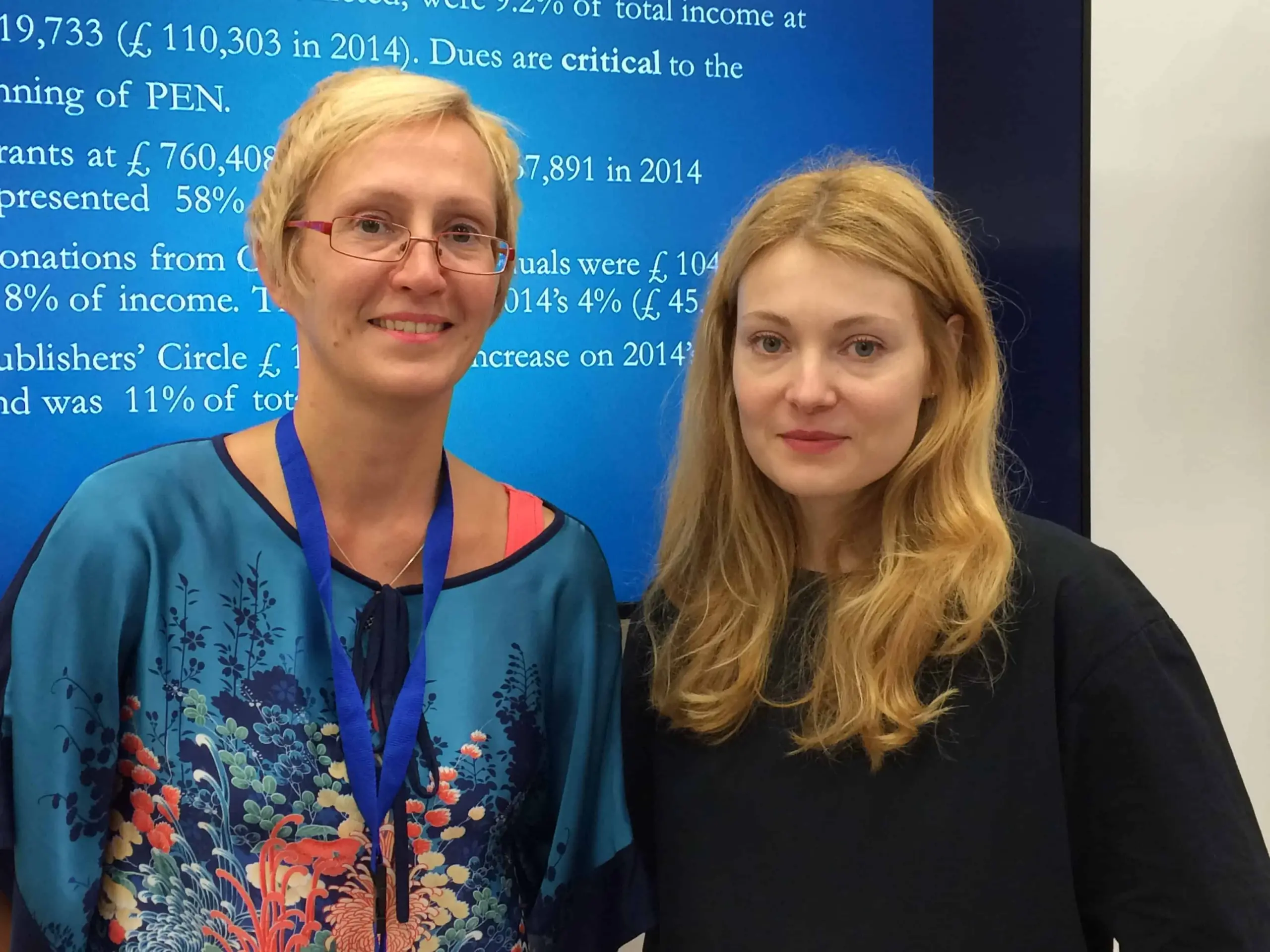The PEN World
PEN America is a member of PEN International. This worldwide association of writers was founded in 1921 to promote friendship and intellectual cooperation among writers everywhere; to emphasize the role of literature in the development of mutual understanding and world culture; to fight for freedom of expression; and to act as a powerful voice on behalf of writers harassed, imprisoned, and sometimes killed for their views.
PEN International is a non-political, a non-governmental organization in formal consultative relations with UNESCO and Special Consultative Status with the Economic and Social Council of the United Nations.
With a secretariat in London, PEN International is composed of more than 100 Centers globally. Most are based in their countries, while others represent exiled writers or those working in a particular language. Worldwide, every PEN Center member is required to sign the PEN Charter and by so doing to observe its conditions.
PEN was one of the world’s first non-governmental organizations and among the first international bodies advocating for human rights. The name was conceived as an acronym for “Poets, Essayists, Novelists” and later broadened to “Poets, Playwrights, Editors, Essayists, Novelists”. Catharine Amy Dawson-Scott, a British poet, playwright and peace activist, conceived of PEN as a way to unite writers after the devastation of World War I. It was, at first, essentially a dinner club, providing a space for writers to share ideas and socialize. Guests at Dawson-Scott’s dinner included PEN’s first president, John Galsworthy, who spoke of the possibilities for an international movement – a “League of Nations for Men and Women of Letters.” PEN set up in other cities – PEN America in New York was founded in 1922 — so writers on their travels would have a place to meet. The first Congress was held in 1923 with 11 Centers taking part.
In its early years PEN was seen as bringing writers together regardless of culture, language or political opinion but delegates attending PEN’s 1933 Congress in Dubrovnik found it impossible to ignore the growing climate of repression and intolerance in Europe. By the late 1930s, PEN was active in appealing on behalf of writers and protesting against their treatment. The case of the Hungarian-born Arthur Koestler, who had been imprisoned in Fascist Spain and sentenced to death, became an early success when he was freed soon after PEN campaigned for his release. However, PEN did not learn of the arrest of Spanish poet Federico García Lorca until a telegram reached London after he had been executed. By the end of World War II, new PEN Centers for writers in exile had also been established in London and New York and pressing issues faced the organization such as how to deal with writers who had supported National Socialism in Germany and elsewhere and how to ensure that the growing international PEN community could contact each other quickly when necessary. This led to the formation of an Executive Committee made up of elected representatives from different Centers. In 1949, following the passage of a resolution introduced by the PEN America, PEN acquired consultative status at the United Nations as “representative of the writers of the world.” The Writers in Prison Committee was established in 1960 to monitor and advocate for writers jailed for their expression. More about the history of PEN around the world can be found here.
PEN America collaborates with PEN Centers worldwide on advocacy for threatened and imprisoned writers and other free expression issues, as well as forming partnerships supporting PEN Centers in Myanmar, South Africa, Haiti and elsewhere.
The PEN World series offers a glimpse into the work of PEN Centers around the globe, and the context for literature and free expression in their countries.
The Latest
PEN Estonia: Raising Popularity of Women’s Writing
The women writers are gaining ground. Books by women and girls are popular and writing is popular with women. We have many wonderful ones but let me introduce two… More
PEN Mexico: A Flourishing Literary Scene Despite Ongoing Impunity
In the eighth PEN World Series feature, we speak to PEN Mexico about the free expression challenges facing Mexican writers and journalists. More








